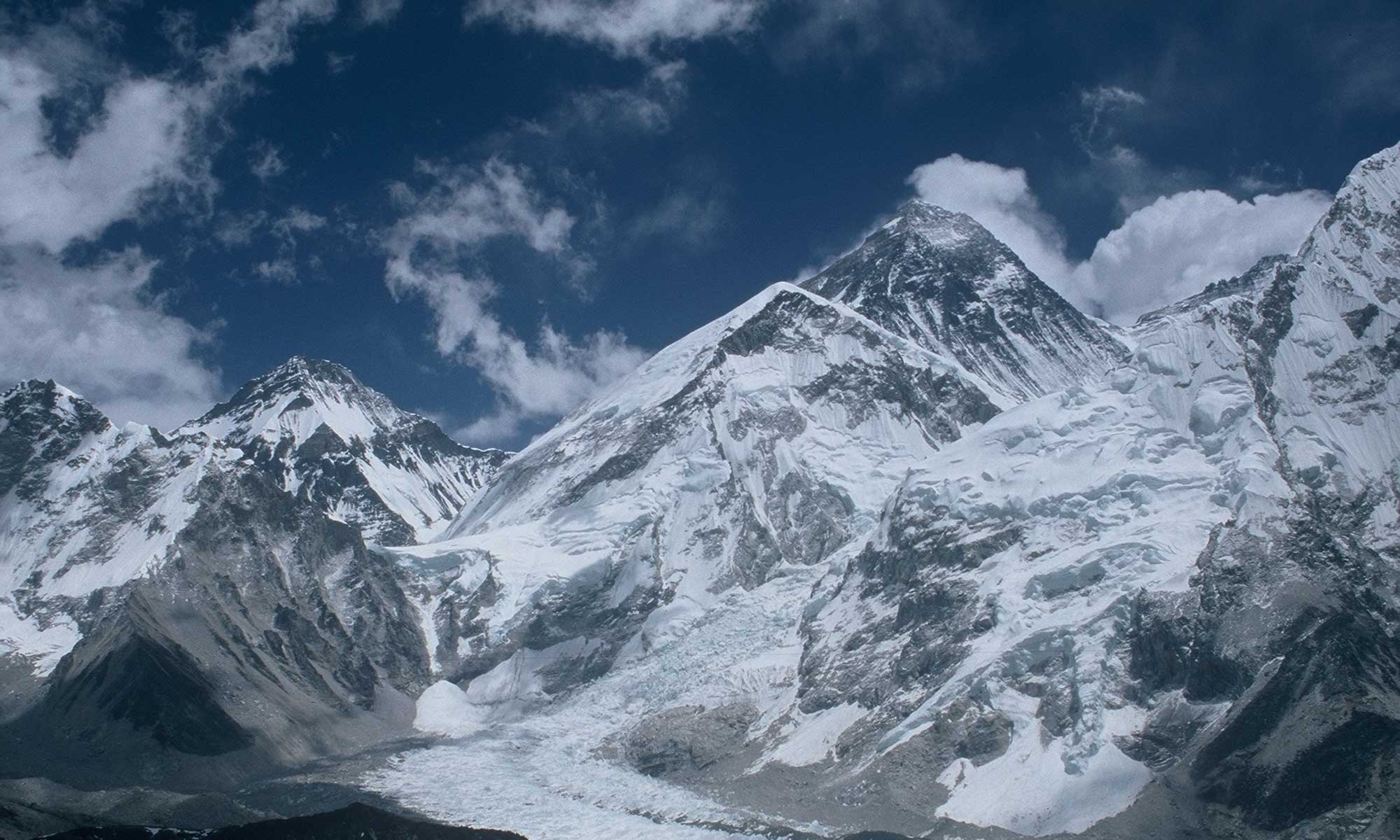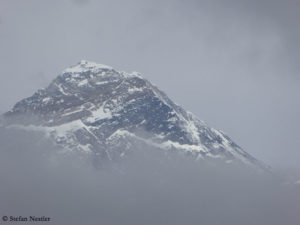The spring climbing season in the Himalayas is over before it has begun. After the Chinese-Tibetan authorities announced that they would not issue permits for the Tibetan north side of Mount Everest and other mountains to foreign expedition teams this spring, the Nepalese government has now pulled the rip cord too. Due to the global spread of the coronavirus, no permits will be issued for expeditions to Everest and the other high mountains of Nepal from March 14 to April 30, the government in Kathmandu announced. The already issued climbing permits are invalid. It is understood that the regulation also applies to trekking tours.
Even if the decree was withdrawn at the beginning of May, the remaining time for expeditions would be too short. The season finishes at the end of May due to the start of the monsoon season.

To Nepal’s economy, especially the countless local expedition and trekking agencies, the government’s decision – as understandable as it is in view of the coronavirus pandemic – is a heavy blow. The country is hanging on the umbilical cord of mountain tourism, which will now lie fallow for an unpredictable time. In 2019, the government raised around four million US dollars through the permits for Everest and Co. alone.
Entire regions such as the Khumbu region around Mount Everest or the area around the eight-thousanders Annapurna and Dhaulagiri live from the income generated by expeditions and trekking trips. Many lodges will now be empty, restaurants and shops lacking customers, families of Climbing Sherpas, porters and base camp staff such as cooks and kitchen helpers will have to get by without the income of the spring season.
Expedition operators are rescheduling
The expedition operators informed their clients about the cancellation of the season and how they will deal with the new situation. So the Austrian operator Furtenbach Adventures announced that they “are arranging transferring their deposits and spots for our 2021 expedition what’s sure to be a sold-out season”. The company said they would help the Sherpas and kitchen staff from Tibet and Nepal “with paying a portion of their wages and also ask all our clients if they are willing to add a small percentage of their deposits”.
The largest Nepalese expedition operator Seven Summit Treks postponed their expeditions to the eight-thousanders Everest, Makalu, Annapurna, Dhaulagiri and Kangchenjunga to next fall season.


Vorschlag: Wer soviel Geld für eine Expedition ausgeben kann, könnte nun sicher auch mit einer Spende helfen.
Jeder, der sich mit Nepal beschäftigt hat weiss, wie wichtig die Einnahmen aus dem Expeditions- und Trekking-Tourismus für die Einheimischen sind. Oft ist das Einkommen eines einzelnen Climbing-Sherpas oder Hochträgers/Porters die Lebensgrundlage für eine ganze – häufig über mehrere Generationen – Familie.
Fällt dieses Einkommen aus, gibt es dafür keinen Ersatz, da es kein Sozialsystem gibt, das solche Ausfälle auffangen würde. Das Einkommen z. B. eines Porters reicht vielleicht gerade aus, dessen Familie durchs Jahr zu bringen – nicht aber, um davon auch noch Rücklagen für Krisenzeiten bilden zu können. Es ist also zwangsläufig, dass viele Nepali nun durch den Ausfall der Tourismus-Saison in finanzielle Not geraten werden.
Hingegen: Wer am Ende der oberen Skala knapp 100.000US$ für eine Everest Luxus-Expedition ausgeben kann, der kann ganz sicher auch in der jetztigen Notsituation einen Beitrag zur Hilfe leisten – und würde sicher auch helfen wollen, wenn erst einmal ein Problembewusstsein für die Situation geweckt würde.
Die direkteste Verbindung haben wohl die Trekking- und Expeditionsveranstalter mit ihren Partner-Agenturen vor Ort in Nepal. Hier steht man auf der einen Seite in Kontakt mit Kunden. Auf der anderen Seite hat man den direkten Kontakt zu den unmittelbar Betroffenen, die nun ohne Job dastehen und Hilfe benötigen. – Vielleicht liesse sich da Hilfe organisieren?
– Bernd –